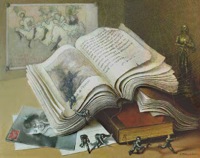Difference between revisions of "Classic"
m (Text replacement - "http://" to "https://") |
|||
| Line 3: | Line 3: | ||
==Origin== | ==Origin== | ||
French or Latin; French ''classique'', from [[Latin]] ''classicus'' of the highest class of [[Roman]] [[citizens]], of the first rank, from ''classis'' | French or Latin; French ''classique'', from [[Latin]] ''classicus'' of the highest class of [[Roman]] [[citizens]], of the first rank, from ''classis'' | ||
| − | *[ | + | *[https://en.wikipedia.org/wiki/17th_century 1604] |
==Definitions== | ==Definitions== | ||
*1a : serving as a [[standard]] of excellence : of recognized [[value]] <classic literary works> | *1a : serving as a [[standard]] of excellence : of recognized [[value]] <classic literary works> | ||
:b : traditional, enduring <classic designs> | :b : traditional, enduring <classic designs> | ||
:c : characterized by simple tailored lines in fashion year after year <a classic suit> | :c : characterized by simple tailored lines in fashion year after year <a classic suit> | ||
| − | *2: of or relating to the [ | + | *2: of or relating to the [https://en.wikipedia.org/wiki/Ancient_Greece ancient Greeks] and [https://en.wikipedia.org/wiki/Ancient_Rome Romans] or their [[culture]] : classical |
*3a : historically memorable <a classic battle> | *3a : historically memorable <a classic battle> | ||
:b : noted because of special [[literary]] or historical [[associations]] <Paris is the classic refuge of expatriates> | :b : noted because of special [[literary]] or historical [[associations]] <Paris is the classic refuge of expatriates> | ||
==Description== | ==Description== | ||
| − | A '''classic''' is an outstanding example of a particular [[style]], something of lasting worth or with a timeless [[quality]]. The word can be an adjective (a classic car) or a noun (a classic of [ | + | A '''classic''' is an outstanding example of a particular [[style]], something of lasting worth or with a timeless [[quality]]. The word can be an adjective (a classic car) or a noun (a classic of [https://en.wikipedia.org/wiki/English_Literature English literature]). It denotes a particular quality in [[art]], [[architecture]], literature, design, [[technology]], or other cultural [[artifacts]]. In [[commerce]], products are named 'classic' to denote a long standing popular version or model, to distinguish it from a newer variety. Classic is used to describe many major, long-standing sporting [[events]]. Colloquially, an everyday occurrence (e.g. a joke or mishap) may be described as 'an absolute classic'. |
| − | "Classic" should not be confused with ''classical'', which refers specifically to certain cultural styles, especially in music and architecture: styles generally taking [[inspiration]] from the [ | + | "Classic" should not be confused with ''classical'', which refers specifically to certain cultural styles, especially in music and architecture: styles generally taking [[inspiration]] from the [https://en.wikipedia.org/wiki/Classical_tradition Classical tradition], hence [https://en.wikipedia.org/wiki/Classicism classicism]. |
[[Category: General Reference]] | [[Category: General Reference]] | ||
[[Category: Languages and Literature]] | [[Category: Languages and Literature]] | ||
Latest revision as of 23:45, 12 December 2020
Origin
French or Latin; French classique, from Latin classicus of the highest class of Roman citizens, of the first rank, from classis
Definitions
- b : traditional, enduring <classic designs>
- c : characterized by simple tailored lines in fashion year after year <a classic suit>
- 2: of or relating to the ancient Greeks and Romans or their culture : classical
- 3a : historically memorable <a classic battle>
- b : noted because of special literary or historical associations <Paris is the classic refuge of expatriates>
Description
A classic is an outstanding example of a particular style, something of lasting worth or with a timeless quality. The word can be an adjective (a classic car) or a noun (a classic of English literature). It denotes a particular quality in art, architecture, literature, design, technology, or other cultural artifacts. In commerce, products are named 'classic' to denote a long standing popular version or model, to distinguish it from a newer variety. Classic is used to describe many major, long-standing sporting events. Colloquially, an everyday occurrence (e.g. a joke or mishap) may be described as 'an absolute classic'.
"Classic" should not be confused with classical, which refers specifically to certain cultural styles, especially in music and architecture: styles generally taking inspiration from the Classical tradition, hence classicism.
